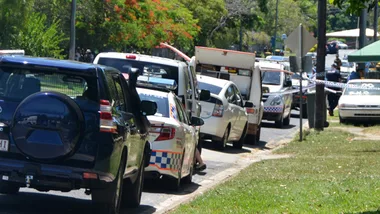Australians have never needed to be more aware of child abuse and it traumatic effects than now, says Dr Cathy Kezelman, president of national support group, Adult Surviving Child Abuse (ASCA).
“Childhood trauma directly affects an estimated five million adult Australians”, says Dr Kezelman. “It also affects their family, including their children and their communities. It’s like the ripples on the surface of a pond that reverberate out to the edge after someone throws in a pebble. It affects every one of us in one way or another.
“The Royal Commission into Institutional Responses to Child Sexual Abuse in 2013, and the recent extension for an additional two years of investigation, shows Australia’s commitment not just to survivors of child sexual abuse but to survivors of all forms of childhood trauma and abuse, be it physical, psychological or emotional.”
ASCA has just launched its national campaign for awareness about childhood abuse, known as Blue Knot Day. But it is not just a single day. The campaign continues until November 2 with a variety of activates – everything from morning teas to speeches at parliament House and even a photography competition – aimed at focussing on how individuals can recover from abuse that may have dogged them all their lives.
“Childhood trauma includes child abuse in all its forms, neglect, experiencing or witnessing family or community violence, or growing up with a parent with a mental illness, who abuses substances, who is imprisoned, or experiencing other forms of separation, grief or loss in childhood,” says Dr Kezelman.
“Through the Royal Commission and other inquiries Australia has borne witness to some confronting stories of child abuse. In the past few years, cases once hidden have finally come to light. We need to make sure that everyone knows recovery is possible and there are people who can help.
“In order to have a strong support system in place, education and training is urgently needed for health professionals and organisations working with adult survivors of childhood abuse and trauma.
“ASCA’s work and research show that with the right help, people can and do recover. Raising community awareness and starting a discussion are essential steps towards de-stigmatising the issue and helping those affected.”
2014 marks the sixth year since ASCA held its inaugural Blue Knot Day (then called Forget-me-knot Day) and in the years since its meaning and community response has grown significantly.
For more information, visit www.asca.org.au or call 1300 657 380.
.jpg?fit=900%2C507)


